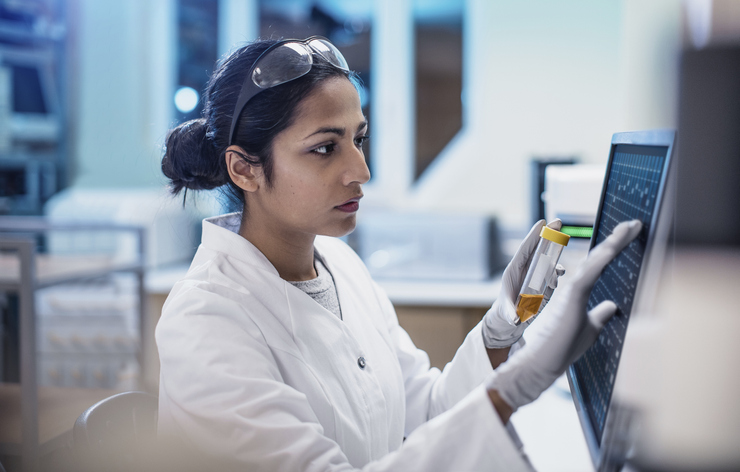
Welcome to this week’s medical news round-up! In our latest edition, we bring you the healthcare topics that have been under the microscope over the past week.
Joining us this week: genetic defects, cancer research and air pollution.
Genetic defects
DNA tool could correct 89% of genetic defects
The latest advance in genetics hit headlines this week with a new technology, prime editing. Prime editing is essentially a way of accurately re-writing genetic code. It has so far proved successful in the lab, correcting damaging mutations such as the genes for sickle cell anaemia.
The concept of gene editing is not new and we have been able to alter DNA for years. However, the accuracy of editing has not been reliable, until now.
Prime editing brings the promise of precision, offering greater flexibility and accuracy. One researcher has described it as pressing Ctrl-F to find the text you want to change (a genetic error), and then copying and pasting in the new text (healthy DNA).
Researchers estimate 75,000 different mutations can result in disease, and prime editing has the potential to correct 89% of them.
What can we learn from this?
Genetics is set to transform the future of medicine, with advances and breakthroughs occurring at rapid rates.
Genetic disorders can have devastating impacts on patients and families, so to eliminate diseases such as sickle cell or thalassemia would be groundbreaking.
However, as our ability to alter DNA continues to improve, the ethical responsibility intensifies. This is particularly relevant to a case earlier this year, featuring a scientist who genetically edited babies to protect them from HIV.
Question to think about: Should we genetically edit human beings to remove or protect from diseases?
Read Complete Guide to Medical Ethics
Cancer research
British and American scientists team up to detect cancer before it emerges
Recent medical news highlights scientific efforts to search for the earliest signs of cancer, with the aim of earlier detection and treatment.
The international research aims to develop less invasive tests for monitoring high-risk patients, as well as to improve imaging techniques to search for undetectable signs of disease.
In the lab, scientists are planning to ‘give birth’ to cancer, to observe exactly what happens at a cellular level. Imaging and diagnostic tests currently detect cancer long after this process, when it is already an established disease.
There is a concern of over-diagnosis, as not all cellular changes lead to cancer. Therefore, to find a reliable, accurate and early method of detection, we will also need to deepen our understanding of the role of genetic and environmental factors.
What can we learn from this?
It is well established that earlier detection of cancer improves the chances of survival. For example, 98% of breast cancer patients live for at least five years if the cancer is detected at stage 1, compared to 26% when diagnosed at stage 4, the most advanced stage.
There are three -screening programmes in the UK for bowel, breast and cervical cancer. There are no other reliable methods for screening other types of cancers, and even the current screening programmes are not 100% reliable.
False positive results refer to positive test results in the absence of disease, in other words ‘over-diagnosing’. Contrastingly, false negatives refer to negative results in the presence of disease. These are big problems for screening programmes.
Question to think about: Explain the potential benefits and consequences of screening programmes
Read NHS Hot Topics 19/20
Air pollution
Research from King’s College London shows that on days with above average pollution levels, there are an extra 231 hospital admissions for stroke and 193 admissions for asthma. It also leads to an extra 124 cardiac arrests over the course of a year.
This staggering impact on health has led Simon Stevens, NHS England boss, to say, “It’s clear that the climate emergency is in fact also a health emergency.”
Heart attacks, stroke and asthma are just three of many health consequences of air pollution. For example, air pollution contributes to almost half a million premature deaths in Europe every year.
There is now an urgent call for action, especially for local governments to have more power and resources to address this issue.
What can we learn from this?
Air pollution is estimated to account for three million deaths globally every year. The environment, and in particular air pollution, is consistently hitting headlines as a major contributor to poor health.
National policy change and action is required to tackle such a diffuse and challenging problem. The government are investing over £3 billion for cleaner air.
Question to think about: Describe your understanding of the relationship between health and the environment?
Words: Katie Burrell
Want weekly news delivered straight to your inbox? Sign up to our newsletters here!
